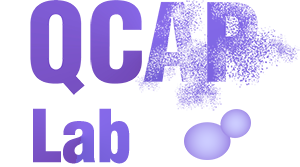Citation:
Abstract:
Quality control-associated proteolysis (QCAP) is a fundamental mechanism that maintains cellular homeostasis by eliminating improperly folded proteins. Here, damaged proteins that do not fold properly, are recognized by the ubiquitin-conjugating system that triggers their elimination by the 26S proteasome. How these proteins are selected for elimination is largely unknown. However, it has been suggested that cis-acting protein sequences, termed degrons, that are normally buried within the protein core are being exposed, resulting in the recruitment of the ubiquitin-conjugation machinery. To identify these cis-acting elements and learn about their unique features, we have developed an unbiased screening method that facilitates the determination of thousands of proteome-derived degrons. The application of a machine-learning algorithm further established the evolutionarily conserved amino acid preferences and secondary structure propensities of QCAP degrons. Here we provide details of the use of this new approach, including the setup, data acquisition, and analysis, and discuss its potential use for QCAP study in yeast and beyond.

